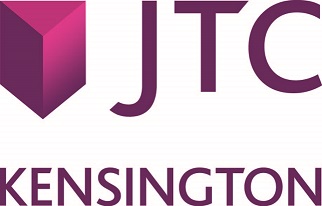GENERAL INFORMATION
New Zealand comprises two main islands, the North and South Islands, and hundreds of other smaller islands. It is located in the south-western Pacific Ocean, southeast of Australia. The capital is Wellington, however, Auckland is recognised as the commercial capital of the country.
New Zealand is an attractive jurisdiction for the establishment of wealth planning structures such as the offshore trust, limited partnership and Limited Liability Company. It has robust legal and political systems which promote a stable economic and political environment, and it complies with international standards of regulation and supervision. Moreover, New Zealand offers excellent communications, business and commercial infrastructures.
Other basic facts: | Time zone | 12 hours ahead of Greenwich Mean Time (+1200 GMT) |
Official language | English and Maori | |
National currency | New Zealand Dollar (NZD) |
KEY CORPORATE FEATURES OF NEW ZEALAND LIMITED COMPANIES
| Share Capital | |
| Permitted currencies | Any currencies |
| Standard currency | New Zealand Dollar (NZ$) |
| Minimum issued capital | One (1) share |
| Authorised capital | N/A |
| Par / nominal value | N/A |
| Directors | |
| Minimum | One (1) |
| Corporate director | Not allowed |
| Local director requirements | A director who lives in New Zealand or who is a director of a company in a prescribed enforcement country |
| Location of meeting | Anywhere |
| Minimum number of meetings | As necessary to comply with obligations under Companies Act 1993 and/or Constitution |
| Publicly accessible records | Yes |
| Shareholders | |
| Minimum | One (1) |
| Bearer shares | No |
| Corporate shareholders | Allowed |
| Local shareholder requirements | No |
| Location of meeting | Anywhere |
| Minimum number of meetings | One (1) annually |
| Publicly accessible records | Yes |
| Company Secretary | |
| Minimum | N/A |
| Registered Office | |
| Requirements | Local registered office in New Zealand |
| Accounts | |
| Records | Kept in New Zealand |
| Preparation of accounts | Yes |
| Audit requirements and filing | An issuer (any company that has alloted securities to the public) must file audited financial statements. Overseas companies, subsidiaries of overseas companies and large companies with 25%or more foriegn shareholders have an obligation to file audited financial statements. A company is "large" if it satisfies at least two of: (a) total assets exceed $10,000,000; (b) total turnover exceeds $20,000,000; and (c) 50 or more full-time equivalent employees. |
| Publicity accessible records | Yes |
| Annual Requirements | |
| Annual return | By due date / allocated filing month |
| Tax filing | Income year 1 April to 31 March. Income tax returns are required by 7 July or following 31 March if the company has a tax agent with an extension of time. |
| Taxation | |
| Corporate tax | 28% |
| Goods and Services Tax (GST) | 15% |
| Capital Gains Tax | None |
| General | |
| Legal system | Common Law |
| Corporate re-domiciliation | Permitted |
| Double taxation treaty access | Yes |
| Exchange control | No |
| Other Common Entities | |
| Partnership | Income and losses passed through and taxed at partner level |
| Limited Partnership | General partner with unlimited liability. Limited partners have limited liability but limited management rights. Income and losses taxed at partner level, subject to loss limitation rules. |
Look-through company | Limited liability company with flow-through tax treatment, income and losses taxed at shareholder level, subject to loss limitation rules. |
The information in this document is not advice of any kind but general information only and should not be relied on as legal advice. Kensington Trust Group recommends seeking professional advice on legal or tax issues affecting you before relying on it. While Kensington Trust Group tries to ensure that the content of this document is accurate, adequate or complete, it does not represent or warrant, express or implied, its accuracy, correctness, completeness or use of any of the information. Kensington Trust Group does not assume legal liability for any loss suffered as a result of or in relation to the use of this document. To the extent permitted by law, Kensington Trust Group excludes any liability for negligence, for any loss, including indirect or consequential damages arising from or in relation to the use of this document.
